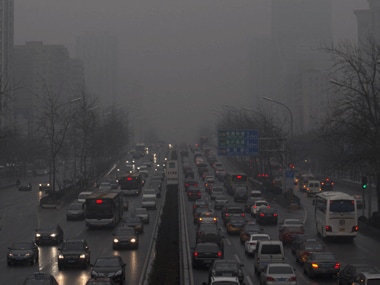It is heartening to know that the government has finally come up with a proposal to scrap vehicles registered before 2005. This has been a consistent demand of the automobile industry and also makes sense in India’s battle against rising pollution. What does not quite click in the proposal though is the idea that multiple agencies will be involved to achieve this ambitious plan. Unlike similar schemes in some other countries like the US and UK, the government itself has not proposed to buy out old vehicles and scrap these while providing cash incentives to vehicle owners. [caption id=“attachment_2526446” align=“alignleft” width=“380”]  AP[/caption] Lack of cash incentives could become a sore point in successful implementation of this scheme. Besides, will commercial vehicle owners find it lucrative enough - given that government’s own data show that while MHCVs (trucks and buses) are just 2.5% of total fleet, they contribute to almost 60% of pollution? According to the proposal put up for public consultations by the Ministry of Road Transport and Highways, there is laborious, three-part process to be followed. Called Voluntary Vehicle Fleet Modernization Plan (V-VMP) for vehicles bought on or before 31st March 2005, the ministry estimates total potential vehicles to be replaced with this definition to be 28 million. It wants the replacement vehicle to be BS IV compliant, a standard which will be applicable from March next year. So anyway the proposal cannot be implemented before next fiscal. The proposal says vehicle owners shredding their old vehicle will get monetary incentives thus: 1) scrap value from old vehicle 2) automobile manufacturers’ special discount and 3) partial excise duty exemption. At least from the proposal it seems that at no stage does the vehicle owner get a direct cash incentive. And unlike the ‘cash for clunkers’ scheme which the US implemented successfully in 2009, the government is not directly buying and scrapping old vehicles. Instead, there is a multi-layered process involved with different agencies such as newly envisaged scrappage centres, dealerships etc, besides requiring unprecedented coordination between various agencies involved, this scheme in its present form does not appear to be time bound. Cash for clunkers has been implemented across the globe in countries like the UK, US, Germany, France and Spain, for limited periods during the global recession of 2009, in a bid to drive sales in the domestic auto industry. The government buys up some of the oldest, most polluting vehicles and scraps them. If done successfully, it holds the promise of stimulating the economy, improving the environment and reducing gas consumption besides improving road safety. In the US, cash for clunkers was introduced during the recession and was an attempt to stoke growth within the economy. the scheme was tailor made in such a way that it also incentivised the US consumer to shift away from gas guzzlers. Under the UK car scrappage scheme, a £2,000 incentive was paid to motorists who scrap cars registered before 31 August 1999 to buy a new car. The government contributed £1,000 and the remaining amount came from the dealers and manufacturers. China substituted an estimated 2.7 million high polluters from the national car fleet by offering rebates of $450 to $900 from June 2009 to May 2010 while Indonesia launched a scrappage scheme in 2009 paying owners of vehicles at least 10 years old MR5,000 ($1,354) was shared equally by the government and auto makers. According to the government’s estimate, India has more than 180 million registered vehicles today - a surge of more than 8 times over last 25 years. The ministry’s proposal says it expects customers to receive three benefits amounting to 8-12% of total vehicle cost. Anyway, the proposal falls short of automobile industry’s expectations for sure. As per this story in Mint newspaper, a presentation by the Society of Indian Automobile Manufacturers some three years back had proposed that customers receive concessions of up to Rs.1 lakh in taxes if they sell vehicles older than 15 years. The first stage of the scheme, the presentation said, should cover India’s eight largest cities, and could see as many as 8.9 million passenger vehicles and 1.47 million commercial vehicles being scrapped. The industry’s pitch to the government at that time was that: doing this will generate Rs.31,332 crore of revenue for the government through taxes in these eight cities alone. What India’s automobile industry needs is a single window vehicle replacement programme with tangible benefits for owners of old vehicles.
Unlike the ‘cash for clunkers’ scheme which the US implemented successfully in 2009, the government is not directly buying and scrapping old vehicles
Advertisement
End of Article


)

)
)
)
)
)
)
)
)



